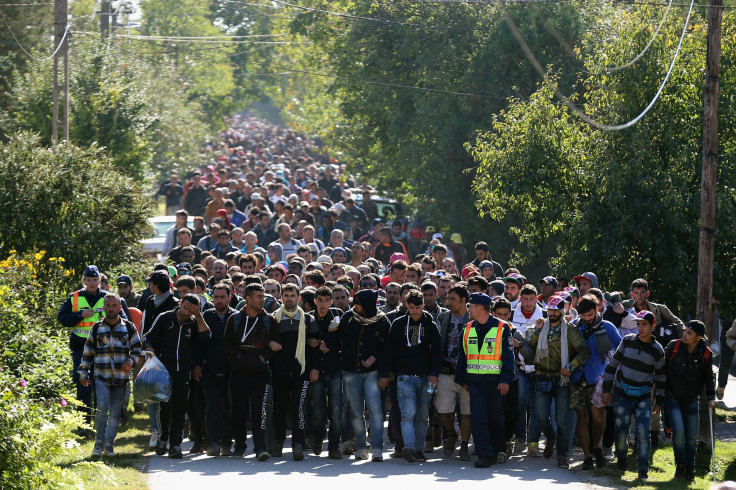UN To Campaign Against Xenophobia, Racism In Dealing With Refugees

The United Nations on Monday proposed that its member countries create and agree upon a system to share responsibility more fairly for the hundreds of millions of refugees and migrants around the world.
The global compact would be accompanied by a U.N.-led campaign to combat the xenophobia and racism that have tainted discussions of the refugees and migrants, U.N. officials said at a briefing to release a report on the global migration.
The U.N. estimates there are 20 million refugees worldwide and another 40 million people displaced inside their own countries. Of the refugees, 86 percent live in developing countries, often near the countries they came from, it says.
Added to those figures are 244 million migrants who live and work in countries where they were not born, it says.
The campaign would attempt to counter an increasingly negative attitude and tone in debates over how to deal with the crisis, the U.N. said.
"I am concerned at the increasing trend of member states to erect fences and walls," U.N. Secretary-General Ban Ki-moon said in the report.
"Xenophobic and racist responses to refugees and migrants seem to be reaching new levels of stridency, frequency and public acceptance."
The proposals come ahead of a summit meeting planned at the U.N. in September to address the global refugee crisis.
The U.N.-led campaign will promote such steps as more direct, personal contact between refugees, migrants and people in their host countries, said Karen AbuZayd, U.N. special adviser on the summit.
Also, nations will be called upon to develop plans for including refugees and migrants in education, language and skills training and employment opportunities.
The global compact would require nations to share responsibility in a variety of ways so that a few nations do not shoulder much of the burden while others do far less, the U.N. said.
It might include resettlement policies, financing arrangements, aid to host countries and technical assistance, AbuZayd said.
"States will share responsibility for refugees more fairly. Host countries will receive immediate support for their development needs. International migration will be governed better," she said.
Amnesty International called the plan a potential "game changer", but said its success depends upon nations agreeing on a permanent system for sharing responsibility.
"World leaders cannot go on lurching from crisis to crisis, haggling over numbers and fiddling while parts of the world burn," Amnesty said.
Citing "refugees in shaky boats, trapped at border fences or crammed into overcrowded camps where hopes and dreams wither", it said: "Too often, these scenes of despair are borne not just from war and persecution but also of bad, callous policies."
Facilitating safe migration is included among the Sustainable Development Goals, a blueprint of plans for nations to fight poverty, promote equality and slow climate change by 2030. U.N. member nations signed the goals last fall.
© Copyright Thomson Reuters 2024. All rights reserved.





















